|
They say a picture is worth a thousand words...
Playing in Germany was a huge part of my career. While I was there, I developed and grew as a footballer in many ways. I become more tactically aware, more technical, and my German got better too. I was chosen to be in the starting 11 throughout the season (playing fullback). This photo was taken of the only game I didn't start on the pitch. It's not a glorious action shot, but if you look closely, you can see something glorious in itself.
Take a look at me sitting there, where my eyes are focused, how engaged my body language is, how focussed I am.
Even though I wasn't on the field, I was using the opportunity to study the game from the bench. I watched the players in my position. I watched their movements, their decisions, how they interacted with the collective group. I watched the opponents and picked out which of them were most dangerous on the ball, which were fastest, which formation they played as a team; Scanning, identifying, preparing. It's not something every player does, but being invested in my career, it's part of the discipline. The key take-away: Every moment is a choice, you can choose to sit back and be passive or you can create opportunities for growth. If you really want to achieve something, this is important. Patience is important too, but don't forget to do what you can with what is within your control. When your chance comes, you'll be ready for it. - Zak Drake
0 Comments
Alright, so you've been a CANXL player for a while now and you've mastered your technique, now what? Now you can move on to the portion of the game that involves where you are and what you’re doing on the pitch in relation to everyone else, anticipating what is going to happen, where the ball is going to go, what runs people are going to make, and finally deciding which decisions to make. You're ready to develop your Tactical Intelligence. Let's walk through the main factors of Tactical Intelligence that learned throughout the long career of Zak Drake. You don’t need to depend on learning and gaining experience as you age, you can learn it all here, and just go out and implement it! How’s that for awesome? All it will take is for you to make sure you’re studying this stuff and applying it. If you actively experiment with it, you’ll be on your way to mastery. Here are our top four factors of Tactical Intelligence
Let's explore! 1.POSITIONINGBuild from the very basics: What is positioning in soccer? Soccer has many different places designated for a person on your team to be during the game. This depends on a players specific tasks or roles within the team. Knowing your role on the field will let you play your part within your teams tactics. When you play your part well, you'll make smarter decisions, utilize your energy reserves properly, and support the run of play in order for your team to complete it's objective (which would ultimately be scoring goals & winning the game!). So what are the roles? Depending on your role, you'd be put into one of these broad categories: Goalkeeper, Defender, Midfielder, or Forward. And once you've got that covered, you'll be placed into your more specific position, whether it be in the center, on the outside, more offensive or holding. It will all depend on your coaches formation (4-4-2, 4-2-3-1, etc.) The traditional formation would have been a 4-4-2 and now most pro teams are sitting at a 4-2-3-1. Which looks something like this! If we break it down by the numbers that represent the positions here, you'll get a sense of the responsibilities each position has. We suggest checking out what your top 2-3 positions would be, and then read the roles of the immediate players around you. That way, you can get a feel for everyones roles and how they're likely to act on and off the ball.
Okay so you might have a preference of where you like to play, and you might not be given the opportunity in that position. If your coach isn't giving you that chance, you need to understand that playing different positions is one of the best things for your growth. If you want to be a striker, there might only be 1 in the formation (like the one above!). You may get put in a fullback or center back, it's not the end of the world, it's a positive thing if you really think about it! It's an opportunity to grow in a different way, its an opportunity for you to get your chance, because these positions are all really important. So maybe you can't make it as the best striker on your team, you can still strive to be the best fullback of the league. It's great for your development. #ownit If you're stuck asking yourself which position should you play, the best way to answer is by first looking at your skills, and then asking which position you *want* to play. Then, look at what skills are required of that position and start developing those skills. Communicate with your coach and let them know you're working on _____ (insert important skill) and if there's ever an opportunity, you'd love it. Ways to improve:
2. Team Strategy The tactics of a team will determine the strength of a team. It's the bedrock of the playing style and philosophy of play that your team will put into action on the pitch. You definitely need to understand your role on the field (Read or re-read Factor #1 on Positioning if you have to!) and in addition to that, you've got to figure out where your teammates are, what their roles are, and then how you can best serve your team while keeping in mind the positioning of yourself & teammates. You might want to go back to that blog and read ALL of the positions, so you get a feel for what each player is doing on your team. Work as a Unit & Trust One Another Whether you're a part of the defensive or offensive unit (More details on these to come!), you're going to have to work together and work for each other and work off one another. Metaphorically, in a functional relationship, you have to be able to depend on your partner when you need them, and you can lean on him/her when times are hard for you and you're struggling. On the pitch you've got to have faith in your teammate. You need to be able to trust your unit to be there for you, whether that's giving you an outlet pass when you have the ball, or telling you about an opponent behind you. More importantly, YOU need to be that support for your teammates. You need to help lift them up while pushing them to peak performance. This involves being aware of your teammates strengths and weaknesses, and assisting them in these areas when needed. You think Navy SEALs or Marines don't know their squads positioning & attributes? They have that stuff memorized, so that when they're in combat, they almost look like they're one body, moving fluidly, to efficiently & effectively achieve their mission. #SempriFi If you don't know your team's tactics, it's a good time to sit down with your unit & coach to clarify your objectives, so that everyone is on the same page. You don't want to wait until you're out on the pitch wondering why your teammate isn't doing the same thing as you or watching your team bombing up long balls when you thought you were supposed to be keeping it on the deck. Once you have individual strength & awareness, then you can build that up with your unit, and then combine with your entire team to have a totally synched up squad who not only KNOWS what it's teammates are doing, but also TRUST one another to do it. Those are the fundamentals of team strategy & understanding. 3. Sight vs. Vision There's a difference between seeing something, and looking at something. When you see things, there is an air of passivity in the action, however when you're looking at something, it's more deliberate, your eyes get into focus, and your brain is activated on the conscious level. This is the difference I'm talking about when I differentiate between Sight and Vision. Sight involves a reaction to the surroundings, while Vision involves awareness, perception, and knowledge. Vision involves anticipation. In football, it's really important to constantly be looking around the field, scanning for information that you can use to your advantage in the current or next play. This ability to read the game is called anticipation. Anticipation is a mix of prediction and expectation. Developing this handy tool will help you in all areas of your game. You'll be able to make smarter choices while attacking or defending, you'll be a step ahead of opponents (or with a hyper-developed level of anticipation, you'll be 5-steps ahead of your opponents *cough* Messi *cough). Whoever you are, and whichever position you're in, you've got to start building your anticipation muscle and understand that the game of football is a thinking game, and though it's great to get wrapped up in the joy of the game, or play in the moment, to be truly great, you've got to start playing ahead of the game. A simple example of this (out of soccer context) is the world of chess. You'd never see a chess master just move pieces around a board for fun, without thinking or strategizing. Every move is deliberate, thought out, meticulous. Trusting your skill and instinct is huge, yet you don't want to solely rely on that. You've got to be involved mentally, stay sharp, and make the right moves on the pitch. You can do this by figuring out where you want the ball to go (where you want to pass it) before you've even received it. This means getting your head up, on a swivel, and periscoping your available outlets prior to getting the ball. Another way to flex this muscle, in a defensive situation, is to read your opponent with the ball. Practice looking at their body language and playing style. If you're the first defender approaching a player, and you learn the person is right foot dominant, you can close him down more effectively, or force him to his weaker foot. If you're not directly closing the player down (let's say you're a defender) you can read if his hips are opening up to strike the ball over the top, so you could gain an extra second in tracking back, or getting a tackle in, or getting your foot in the way, etc. There's a lot you can do with that split second. Vision takes you to the next level of football. It's what all the pros are doing at nearly every moment of the game. Watch for this as you study your favorite players, and once you pick it up, and start practicing, you'll start to feel like the game slows down for you, and you'll be ready to take on more challenges. 4. Decision Making Do you really want to put yourself in the spotlight as a player? Do you want to show that you're a great player?
Then, listen up. A SUPER secret to taking your game to the next level is advancing your proficiency in your ability to make optimal decisions. Woah, what's that really mean? Simply put ---> Get really good at making the best choice. It's easier said than done, but I'll break down some ideas you can obtain this soccer holy grail. For growth in this area, here are some of the best tips: Study professional football I've said it before and I'll say it again, learn from the pro's! Study the players who are top class. Learn how they tick. When you're watching a game, ask yourself (and try to answer) why do the players make certain passes and other actions on the ball? Why did they make that decision? In answering this, you'll be putting yourself into the role of the player, and in a sort of empathetic way, you're developing your brain to understand the critical thinking it takes to make the best choices. Mistake your way to success Trial and error is a great way to learn, since you're training more than you play in games, that would be a awesome time to work on your decision making. If you make a poor decision, like playing a high risk pass, try to figure out which alternatives could have been better. Did you have support behind you to retain possession? Did you forget to scan the other side of the field where a player was open/making a run? Learn from your mistakes, and and you'll quickly become more successful in choosing the best option. Add restrictions ---> +/- If you reduce the number of touches you're allowed to have on the ball, it forces you to make decisions quicker (if you don't, you're screwed! hehe). Start thinking about what to do before you have the ball. Being able to anticipate the play (see Sight vs. Vision again!) will help you destroy your opponents. As a bonus, playing quicker will improve your touch too! As a visual cue, you can write +/- on your wrist during training, and if you see it, you'll know to "add less" touches. These tips aren't going to just help you automatically become better at making decisions. It's not an overnight thing. In the long run, over time, your training to make optimal decisions will add up and improve your tactical awareness and ability as an individual. What can you commit to today? Will you watch more football & study it? Will you check in with yourself after making mistakes? Can you force yourself to become quicker in your decision making? If you want to take your game from an amateur level, to top class, decision making is a key factor. Work on it, and I assure you that you'll get better! Want to take your soccer career & life to the next level? Well guess what, you've got to develop a growth mindset and become a lifetime learner. That includes learning sticking your nose in a book every once in a while. There are countless personal growth tools & books & programs out there, so make sure you're picking the best! Here are our best suggestions for our favorite books to pump you up and get you focussed on the right path. These books contain so much wisdom to inspire and empower you to live at your best, & rock your soccer career! Obviously these books aren't all soccer specific, so you'll need to apply the knowledge to your own specific situations, struggles, obstacles, etc. Click on any the book links for OPTIMIZE book summaries on each of them! Enjoy! Honorable mentions:
|
ABOUT |
EDUCATION |
|

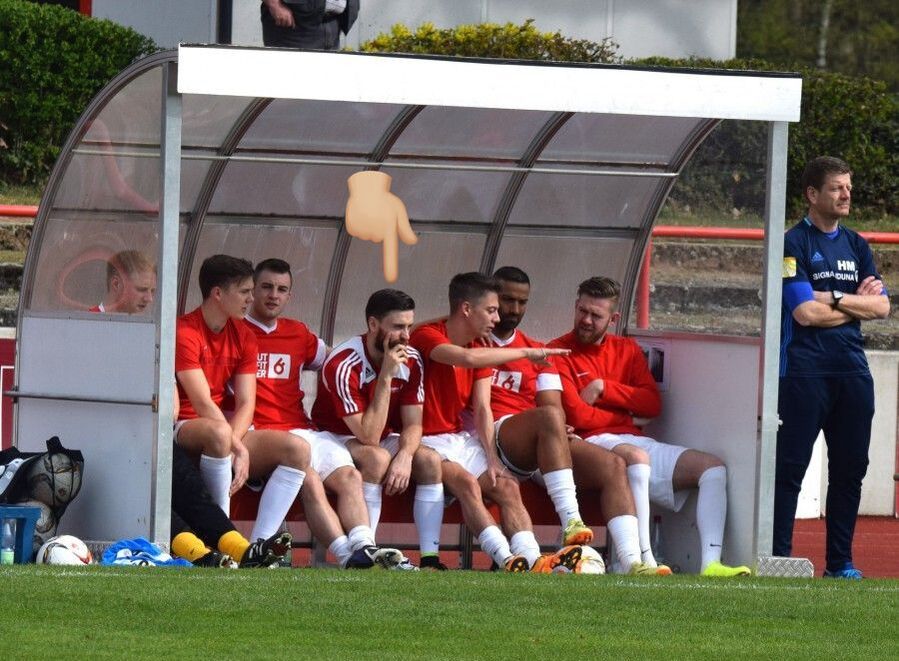

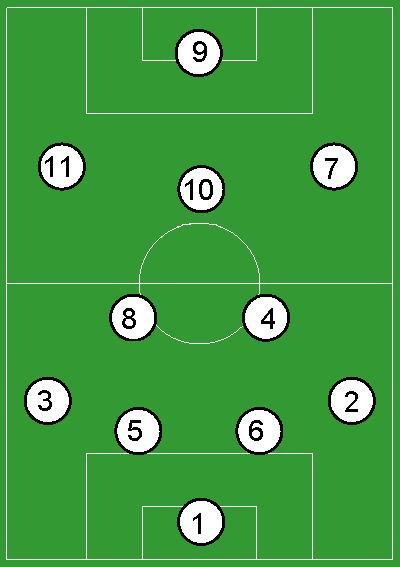



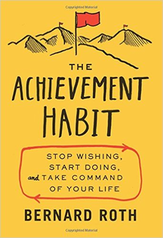
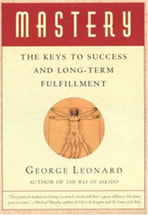

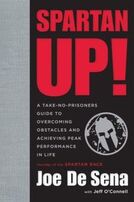
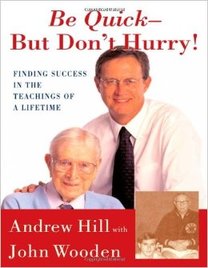
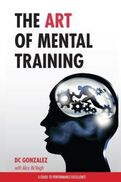
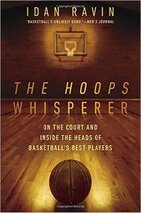


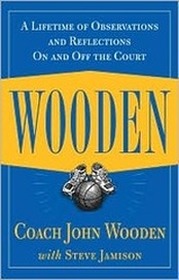
 RSS Feed
RSS Feed